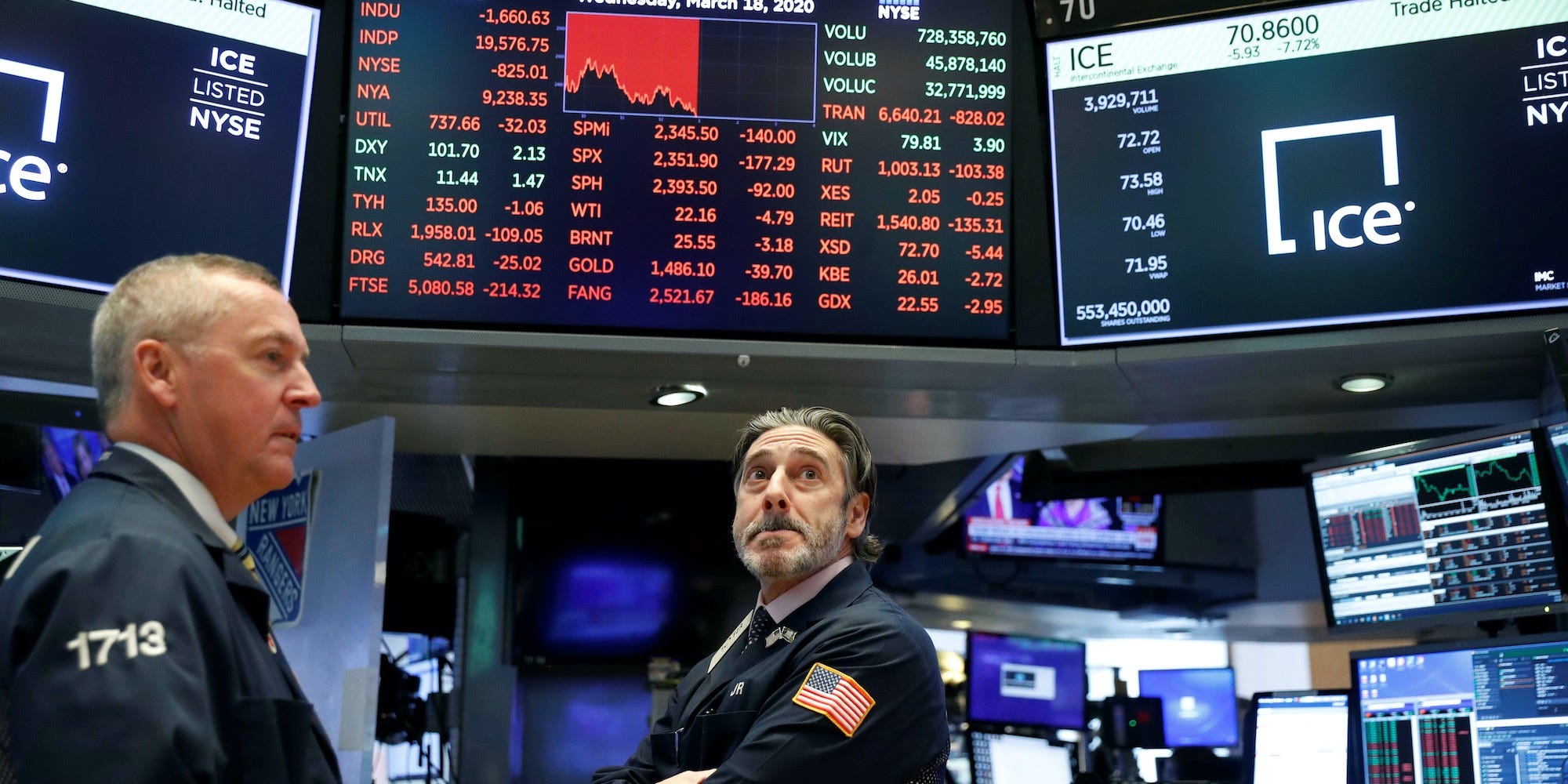- US stocks slid on Monday after the Chinese government ordered a halt of American farm imports.
- The announcement further inflamed US-China trade tensions and paused a key component of the two nations’ phase-one trade deal.
- Markets generally ignored nationwide protests against police brutality staged throughout the weekend, only trading lower after China’s import pause was revealed.
- Watch major indexes update live here.
US equities declined during June’s first session as rising trade tensions spoiled hopes for a smooth economic reopening.
Major indexes trimmed early gains after Chinese government officials ordered companies to halt imports of US farm products. The purchases were a key component in the two countries’ phase-one trade deal. The import pause fueled new worries that the economic powers could resume their tit-for-tat trade conflict after a months-long hiatus.
Here’s where US indexes stood at the 9:30 a.m. ET market open on Monday:
- S&P 500: 3,033.02, down 0.4%
- Dow Jones industrial average: 25,281.31, down 0.4% (102 points)
- Nasdaq composite: 9,465.92, down 0.3%
Markets generally ignored the weekend's nationwide protests against police brutality. While COVID-19 cases have trended lower throughout the US in recent weeks, experts fear the demonstrations could fuel a second wave of infections.
West Texas Intermediate crude fell as much as 3.4%, to $34.27 per barrel. International benchmark Brent crude moved the other direction, climbing 8.4%, to $38.31 per barrel, at intraday highs.
Read more: Famed economist David Rosenberg says investors are falling into a classic market trap that's historically preceded a further meltdown - and warns 'there's not going to be much of a recovery'
The market's weak decline follows a resurgent session to close out May. Equities reversed early losses on Friday to close moderately higher after President Donald Trump's press conference on China fueled less volatility than expected. Tensions between the US and China swelled through the week after Beijing moved to impose controversial national security laws in Hong Kong.
The White House fired back by declaring it no longer viewed Hong Kong as fully autonomous, placing key trade relationships in uncertainty.
Now read more markets coverage from Markets Insider and Business Insider:
Goldman Sachs starts shorting the dollar as economic reopenings boost foreign currencies
The Fed unveils top corporate-bond ETFs targeted in its $1.3 billion stimulus spree

